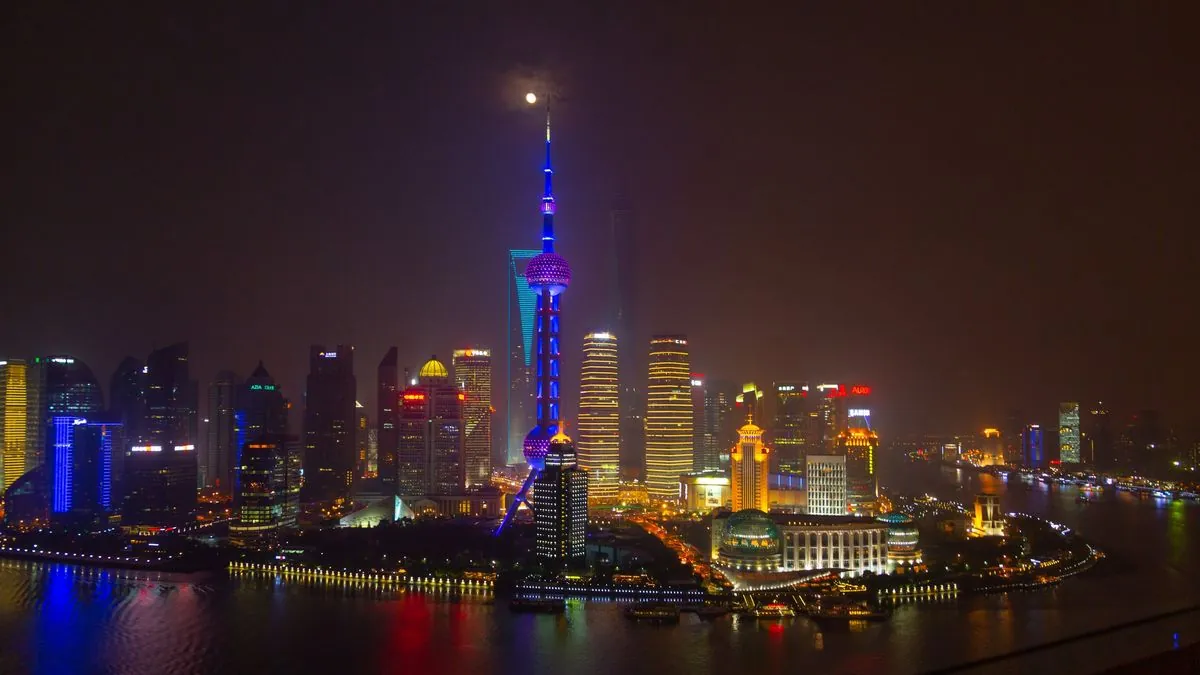In a bid to conserve energy, Hangzhou, the capital of Zhejiang province and home to tech giants Alibaba and NetEase, has implemented a ban on nonessential landscape lighting. This measure comes as eastern and southern China face an unprecedented heat wave, pushing temperatures above 40°C (104°F) since August 2, 2024.
The city of 12.5 million residents, often referred to as China's "Silicon Valley," has also suspended all light shows until August 11, 2024. Hangzhou, known for its UNESCO World Heritage Site West Lake and as the host of the 2022 Asian Games, is taking these steps to ensure the normal operation of functional lighting in public spaces and maintain nighttime travel safety.
Meanwhile, Shanghai, the world's most populous city with over 26 million inhabitants, experienced a record-breaking power demand on August 2, 2024. The maximum load on its grid surpassed 40 million kilowatts for the first time. Shanghai's Lujiazui financial district, home to numerous skyscrapers, consumes twice the power per square kilometer compared to Manhattan in New York or the Ginza district in Tokyo.
Chinese meteorologists attribute the extreme weather to global warming, despite the cooling effects of the La Niña phenomenon. The country, which is the world's largest emitter of greenhouse gases, has pledged to achieve carbon neutrality by 2060 and has been investing heavily in renewable energy sources.
The heat wave has affected multiple regions, including Zhejiang, Jiangsu, and Anhui provinces. Jiangsu, a major manufacturing hub, and Anhui, an important agricultural region, are also experiencing high temperatures that are expected to persist until August 11, 2024.
This extreme weather event follows China's warmest spring since 1961 and the hottest May on record, which led to drought-like conditions in central farmland areas. The country had previously experienced its hottest summer on record in 2022, with temperatures reaching 45°C in some areas.
As China grapples with the impacts of climate change, cities like Hangzhou and Shanghai are implementing measures to manage power consumption and ensure the safety of their residents. The situation underscores the urgent need for continued efforts to combat global warming and adapt to changing climate patterns.
